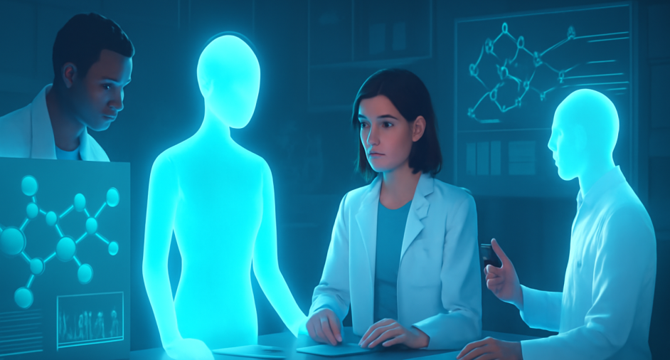Unite
1M
300

Image Credit: Unite
Microsoft Discovery: How AI Agents Are Accelerating Scientific Discoveries
- Microsoft Discovery is a new platform using AI agents to accelerate scientific research and development, addressing challenges faced by traditional methods that are slow and iterative.
- The platform utilizes graph-based knowledge reasoning, specialized AI agents, and an iterative learning cycle to support scientists in generating hypotheses, analyzing data, and conducting experiments.
- Microsoft Discovery stands out by supporting the entire research process, from idea inception to final results, leading to faster scientific discoveries and reducing time delays.
- It employs a graph-based knowledge engine that maps relationships between scientific data, providing transparency in conclusions and enabling researchers to explore connections across different fields.
- AI agents in Microsoft Discovery act independently, making decisions and solving problems, coordinating with each other to enhance efficiency and innovation in scientific research.
- By using specialized agents that focus on different research tasks and mimicking human research team collaboration, the platform can accelerate discoveries and facilitate complex work processes.
- Real-world impact: Microsoft researchers found a new coolant for data centers in about 200 hours, significantly faster than traditional methods, showcasing the platform's capability for rapid innovation.
- The platform is adaptable and allows researchers to create custom agents tailored to specific requirements, enhancing collaboration and efficiency in research processes.
- Challenges include ensuring AI accuracy, transparency in reasoning, integration with existing systems, and considerations of intellectual property protection and changing scientific disciplines.
- Microsoft Discovery redefines research by enabling collaboration between AI agents and humans, expediting discovery methods and linking ideas across different domains.
- By balancing AI capabilities with human oversight, platforms like Microsoft Discovery have the potential to revolutionize research and development, offering faster solutions to global challenges like climate change and diseases.
Read Full Article
18 Likes
For uninterrupted reading, download the app